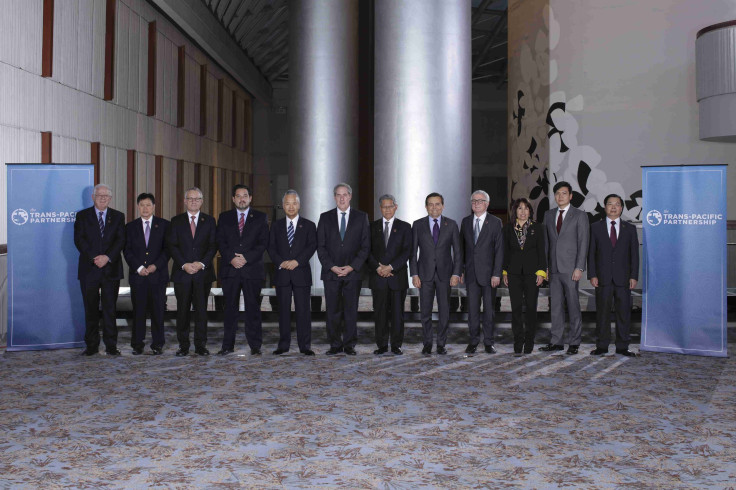Faint Corporate Praise Greets TPP Trade Deal

SYDNEY (Reuters) - Early industry reaction to a historic trade agreement reached between 12 Pacific Rim countries on Monday amounted to faint praise that it could have been worse and umbrage that the United States appeared to be the biggest winner.
The Trans-Pacific Partnership (TPP), aimed at liberalizing commerce across nations accounting for 40 percent of the world's economy, was signed late on Monday after five difficult years of talks, though it still needs ratification by each country.
Initial ambitions for the deal, covering an enormous range of products and services from kiwifruit to semiconductors, were clipped back in many areas to find agreement. There was also concern that the summary made public didn't disclose the detail where the devils might lurk.
New Zealand's Fonterra, the world's biggest dairy exporter, said the deal, which would cut tariffs on 93 percent of its exports to the United States, fell "far short" of its original ambition to eliminate all tariffs, blaming "entrenched" U.S. protectionism.
Still, Wilson said the deal was a "small but significant" step forward for the dairy sector with "some useful gains" for New Zealand dairy exporters to key TPP markets such as the United States, Canada and Japan.
The politically influential Dairy Farmers of Canada were similarly muted, highlighting financial losses, albeit mitigated by a "fair compensation package".
Beef, sugar, rice, seafood and horticulture companies in Australia and New Zealand welcomed the increased access to Japanese markets thanks to tariff reductions under the deal.
"We should focus on the gains made in this agreement for Australian sugar, and not the success of the powerful U.S. sugar lobby in maintaining their protectionist stance against bringing sugar into their deficit market," said Dominic Nolan, chief executive of the Australian Sugar Milling Council.
LOST CONCESSIONS
In India, there was concern that exports to the U.S. would be hit because of the loss of zero-duty export concessions.
"If the deal is implemented, India’s exports of products like textile and leather will be severely affected," said Abhijit Das, head of the Center for WTO studies, a think-tank run by India’s Ministry of Commerce and Industry.
It could even, he suggested, nudge India into restarting negotiations on a free-trade agreement with the European Union.
Among those expected to welcome the deal are U.S.-based global e-commerce companies like Google and Uber, who will have restrictions removed on sales into foreign markets, including existing requirements that they establish local infrastructure.
The U.S. Trade Representative office welcomed the "cutting-edge rules to promote internet-based commerce – a central area of American leadership".
Australian Retailers Association executive director Russell Zimmerman said it was too early to say how those measures would affect local retailers but warned there was a risk of harm "unless barriers are also lifted for Australian retailers going overseas".
Even in areas where the Obama administration compromised, such as cutting the monopoly period for new biologic drugs, companies were grudging in their welcome.
Osamu Nagayama, chairman and chief executive of Japan's Chugai Pharmaceutical Co Ltd, which sells such drugs in the United States through Switzerland's Roche, was grateful that the settlement didn't drop below eight years as the protection period.
"That said, given the current R&D environment, shortening the data protection period would be challenging for the overall pharmaceutical industry," he added.
© Copyright IBTimes 2024. All rights reserved.




















